How often should you visit a Sydney eye clinic
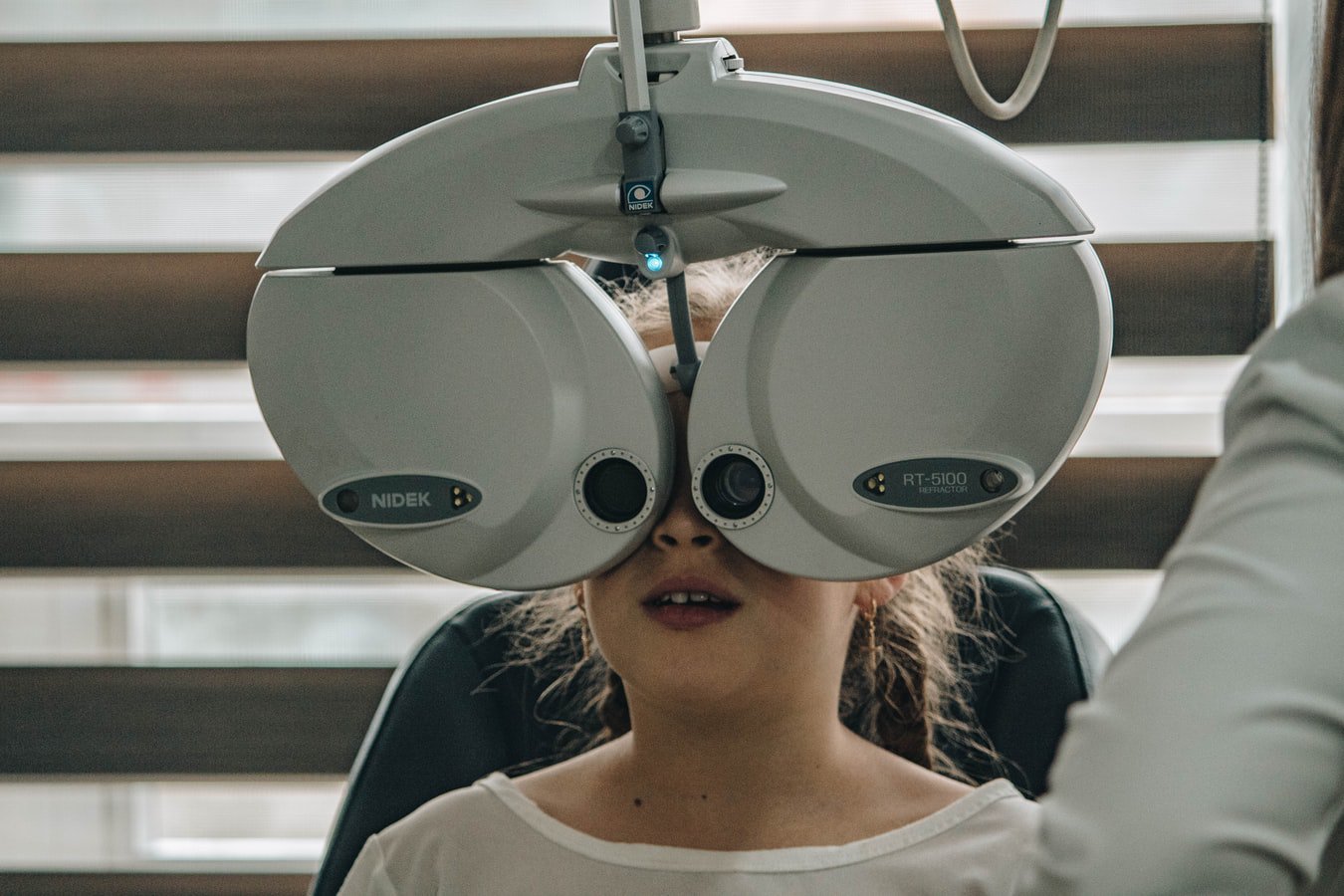
Your age, as well as your eyes, family, and other factors, have a role.
Your doctor could advise regular Sydney eye clinic exams every two years if you’re under 40 and don’t have any eye issues. Or they could inform you that no tests are necessary. Find out their recommendations for you.
Every 1-2 years, everyone 40 years of age or older should get their eyes examined.
You should visit Sydney eye clinic annually if you’ve ever had eye problems or if you’re at risk of doing so (for example, if someone in your family has).
Why? You should get your eyesight checked to discover whether you have any major, often “silent” issues like glaucoma, age-related macular degeneration, cataracts, or diabetic retinopathy.
When your kid is a newborn and again at each routine medical checkup, if they don’t have any risk factors for eye issues, their eyesight should be assessed. It will be simpler for the doctor to evaluate their eyes when kids are 3 years old. Every one to two years after the first grade, kids should get their eyes checked.

Table of Contents
ToggleAre My Eyes in Danger?
You may need more regular tests if you have a health issue like high blood pressure, perform a profession that demands a lot of eye contact, or use medications that might impair vision.
Get your eyes tested if you have type 1 diabetes within five years of your diagnosis and then annually after that.
If you’re told you have type 2 diabetes, you should be checked out right away. After that, get your eyes tested annually.
How to Get Ready
Mention any visual issues you may have when you call to schedule your test.
Make a note of any questions you have for the doctor before you visit. Be prepared to give them an update on any medications you use as well as your (and your family’s) history of eye health.
Bring the prescription, your glasses, and your contact lenses. Bring sunglasses as well for the return journey. To dilate your pupils, the doctor could use eye drops. It is known as dilation. After that, light sensitivity will affect your eyes.
When You Get a Sydney Eye Clinic Exam
The eye doctor or a member of the office staff will first inquire about your past medical and visual history.
Depending on the technology utilized, the test might run anywhere from 30 minutes to several hours. It will cover your eye health and eyesight.
The majority of the following Sydney eye clinic exams, as well as maybe a few more, will likely be performed on you:
Test of eye muscle movement: This determines the alignment of your eyes. The physician will observe how your eyes move while you track a moving object (such as a finger tip or their pen) as it changes direction.
The cover test reveals how effectively your eyes cooperate. You’ll fix your gaze on a little object in the distance. To measure how much your eyes move, the doctor will cover and uncover each eye. Additionally, your doctor will be looking for an eye that shifts away from the intended target. Strabismus is the medical term for this issue. You are welcome to retake the Sydney eye clinic exam with a nearby target.

External examination and student responses
The doctor will observe how your pupils respond to light and nearby objects. Your eyelids’ posture and the whites of your eyes will also be examined at the same time.
You’ll sit in front of an eye chart with progressively smaller letters as you read down each line to undergo a visual acuity test. You’ll cover each eye in turn and read aloud while moving down the chart while using the other eye until you can no longer make out the letters.
Refraction testing: The doctor might use a computerized refractor to determine your precise lens prescription. By switching the phoropter back and forth between lenses and asking you which is better, your doctor will adjust the prescription. You won’t need this Sydney eye clinic exam if you don’t need corrective glasses.
The slit lamp (biomicroscope) enlarges and illuminates the front of your eye. In order to search for indications of certain eye disorders, the doctor utilizes it to examine your cornea, iris, lens, and back of your eye.
The retina, retinal blood vessels, fluid in your eyes (which your doctor may refer to as vitreous fluid), and the head of your optic nerve may all be seen during a retinal examination (also known as an ophthalmoscopy).
Tests for glaucoma determine if the fluid pressure within your eyes is within a normal range. It is quick, painless, and there are a few methods to accomplish it:
The most precise device is the tonometer. You’ll be given eye drops to numb them. To measure the pressure, the doctor will instruct you to look straight ahead as he or she lightly touches the front surface of each eye using an instrument known as an applanation tonometer or Tonopen.

Noncontact tonometer or puff of air: As you look at a target, a machine will blow a little puff of air into each of your eyes. Your eye’s resistance to the puff reveals how much pressure is there there.
Pachymetry: In this Sydney eye clinic examination, the thickness of your cornea is measured using ultrasound. False low-pressure readings may be the result of thin corneas. False high-pressure readings may result from thick corneas. One test may be administered to you in order to establish a baseline for comparison with subsequent results. People who need corneal surgery may utilize it.
Pupil enlargement: The doctor will use instruments and lighting to examine the inside of your eyes after thoroughly enlarging your pupils. It takes the eye drops for this portion of the test 20 to 30 minutes to start working. They obstruct your eyesight and increase your eyes’ sensitivity to light. These effects might linger for many hours or more. You may need those sunglasses on the way home because of this. Modern devices can see the very back of your retina without dilation of your pupils.
Perimetry of the visual field: Your visual field is the region in front of you that you can see clearly without shifting your eyes. Your Sydney eye clinic doctor will map what you see at the edges (periphery) of your visual field using one of three tests and utilize this map to identify any eye issues.
4 ways to find a Sydney eye clinic
1. Request referrals from relatives or friends.
2. Seek advice from your primary care physician.
3. Contact a neighboring hospital’s ophthalmology or optometry department and inquire about the physicians that work there.
4. Speak with local and state organizations, associations, and academies of ophthalmologists and optometrists to see if they can assist you.
Your age, as well as your eyes, family, and other factors, have a role. Your doctor could advise regular Sydney eye clinic exams every two years if you’re under 40 and don’t have any eye issues. Or they could inform you that no tests are necessary. Find out their recommendations for you. Every 1-2 years,…
Recent Posts
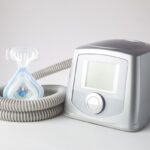 Ultimate Guide to Choosing an Oxygen Concentrator in Australia (2026)ntroduction to Modern Oxygen Therapy For many Australians living with chronic respiratory conditions, maintaining an active lifestyle in cities like Sydney requires more than just medical advice—it requires the right technology. An oxygen concentrator is […]
Ultimate Guide to Choosing an Oxygen Concentrator in Australia (2026)ntroduction to Modern Oxygen Therapy For many Australians living with chronic respiratory conditions, maintaining an active lifestyle in cities like Sydney requires more than just medical advice—it requires the right technology. An oxygen concentrator is […]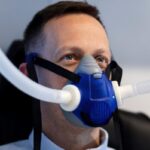 The Best CPAP Mask Options for New Users and What Makes Them ComfortableSleep apnea disrupts breathing during sleep, causing repeated pauses that prevent restful sleep and strain the cardiovascular system. CPAP therapy delivers continuous pressurized air through a mask, keeping airways open throughout the night and enabling […]
The Best CPAP Mask Options for New Users and What Makes Them ComfortableSleep apnea disrupts breathing during sleep, causing repeated pauses that prevent restful sleep and strain the cardiovascular system. CPAP therapy delivers continuous pressurized air through a mask, keeping airways open throughout the night and enabling […] Oxygen Machine for Home Use: A Complete Guide for First-Time BuyersWhat Is an Oxygen Machine and How Does It Work? An oxygen machine for home use, commonly known as an oxygen concentrator, is a medical device that delivers concentrated oxygen to individuals with respiratory conditions. These respiratory therapy devices […]
Oxygen Machine for Home Use: A Complete Guide for First-Time BuyersWhat Is an Oxygen Machine and How Does It Work? An oxygen machine for home use, commonly known as an oxygen concentrator, is a medical device that delivers concentrated oxygen to individuals with respiratory conditions. These respiratory therapy devices […]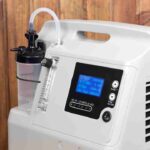 Medical Oxygen at Home: Essential Information on Oxygen Tanks, Machines, and TherapiesIntroduction For individuals with chronic respiratory conditions, such as COPD, asthma, or emphysema, medical oxygen therapy at home is often a critical part of maintaining health and improving quality of life. Whether you need an oxygen machine for […]
Medical Oxygen at Home: Essential Information on Oxygen Tanks, Machines, and TherapiesIntroduction For individuals with chronic respiratory conditions, such as COPD, asthma, or emphysema, medical oxygen therapy at home is often a critical part of maintaining health and improving quality of life. Whether you need an oxygen machine for […]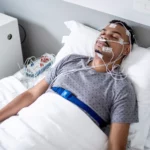 Understanding Sleep Apnea: Causes, Symptoms, and Effective TreatmentsSleep is one of the most vital pillars of good health, but for millions of people, restful sleep is harder to achieve than it should be. One of the most common reasons for poor sleep quality is sleep apnea, a potentially serious sleep disorder that often […]
Understanding Sleep Apnea: Causes, Symptoms, and Effective TreatmentsSleep is one of the most vital pillars of good health, but for millions of people, restful sleep is harder to achieve than it should be. One of the most common reasons for poor sleep quality is sleep apnea, a potentially serious sleep disorder that often […]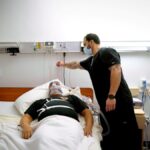 Bulk-Bill Sleep Study Brisbane: Affordable Options for LocalsWhat Are Bulk-Bill Sleep Studies and How Do They Work in Brisbane? Bulk-bill sleep study Brisbane services provide you with direct billing to Medicare, eliminating upfront costs for diagnostic testing. When you receive a bulk-bill sleep study, the […]
Bulk-Bill Sleep Study Brisbane: Affordable Options for LocalsWhat Are Bulk-Bill Sleep Studies and How Do They Work in Brisbane? Bulk-bill sleep study Brisbane services provide you with direct billing to Medicare, eliminating upfront costs for diagnostic testing. When you receive a bulk-bill sleep study, the […]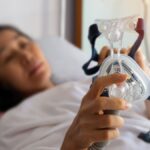 Sleep Apnea Test Adelaide: Early Diagnosis for Better HealthWhat Is Sleep Apnea and Why Is Early Diagnosis Important? Sleep apnea is a serious sleep disorder where your breathing repeatedly stops and starts during sleep. This condition affects millions of people worldwide, yet many remain undiagnosed, missing […]
Sleep Apnea Test Adelaide: Early Diagnosis for Better HealthWhat Is Sleep Apnea and Why Is Early Diagnosis Important? Sleep apnea is a serious sleep disorder where your breathing repeatedly stops and starts during sleep. This condition affects millions of people worldwide, yet many remain undiagnosed, missing […]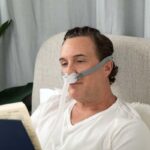 Sleep Apnea Explained: Causes, Symptoms, and Treatment OptionsIntroduction: Why Sleep Apnea Deserves Your Attention Picture this: you go to bed at a reasonable hour, expecting a full night’s rest, yet you wake up feeling drained, irritable, and foggy-headed. It’s not just “bad sleep” — it could be sleep apnea, a […]
Sleep Apnea Explained: Causes, Symptoms, and Treatment OptionsIntroduction: Why Sleep Apnea Deserves Your Attention Picture this: you go to bed at a reasonable hour, expecting a full night’s rest, yet you wake up feeling drained, irritable, and foggy-headed. It’s not just “bad sleep” — it could be sleep apnea, a […]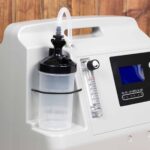 Top 5 Online Stores to Purchase a Portable Oxygen Concentrator MachinePortable oxygen concentrators (POCs) have become essential devices for individuals with respiratory conditions, providing a convenient and reliable source of oxygen. With the rise of e-commerce, purchasing a POC has never been easier. However, selecting […]
Top 5 Online Stores to Purchase a Portable Oxygen Concentrator MachinePortable oxygen concentrators (POCs) have become essential devices for individuals with respiratory conditions, providing a convenient and reliable source of oxygen. With the rise of e-commerce, purchasing a POC has never been easier. However, selecting […] Portable Oxygen Concentrator Australia: Features and BenefitsIn recent years, the demand for portable oxygen concentrators (POCs) has surged in Australia, largely due to the increasing prevalence of respiratory conditions and the need for greater mobility among patients. These devices provide a continuous supply […]
Portable Oxygen Concentrator Australia: Features and BenefitsIn recent years, the demand for portable oxygen concentrators (POCs) has surged in Australia, largely due to the increasing prevalence of respiratory conditions and the need for greater mobility among patients. These devices provide a continuous supply […]
